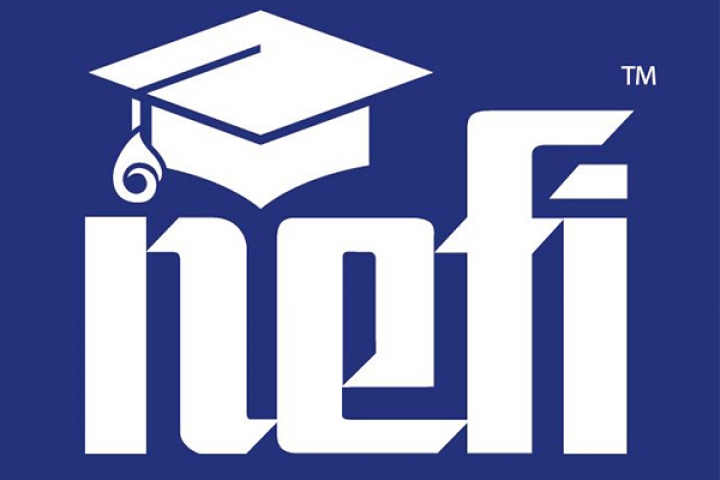By Rachel Hastings
24 February 2022

The energy industry has been volatile for years — but with emerging geopolitical challenges, rapidly increasing prices, and the ongoing impacts of the COVID-19 pandemic, it’s more complicated than ever to run a retail energy business. With those changes on top of shifting regulations, the urgent need to move toward renewables, and market consolidation, today’s energy leaders are stretched to the limit.
That’s where the NEFI Energy Leaders Program, a collaboration between the National Energy & Fuels Institute (NEFI) and Tuck Executive Education, comes in. The 2021 iteration of the program, taught by Tuck faculty and industry leaders, was held as a four-week virtual session in October for a diverse group of retail energy executives. The program, previously held in-person on Tuck’s campus, was revamped in recognition of the major changes that have rocked the industry in the last two years.
For 2021, the program’s mission was “to better equip energy business leaders with the skills needed to identify and manage today’s unique challenges, including ongoing safety concerns related to COVID-19 and other health threats and the clean energy/carbon tax/electrification movements at the state, federal, and community levels.”
Designed as a twice-weekly commitment, the program’s structure ensured that leaders could benefit from the program’s insights without having to step away from their work entirely — and allowed each participating leader to bring an associate to each session at no additional cost.
In addition to Tuck School of Business faculty, the program takes advantage of Dartmouth College’s significant energy-related resources, including the Tuck Revers Center for Energy, the Arthur L. Irving Institute for Energy and Society at Dartmouth, and the Thayer School of Engineering.
Katrina Scully Ohl, president and CEO of truck equipment manufacturer Scully Signal Company, reports, “The Energy Leaders Program was exactly what I had hoped it would be. It was a chance to pull off the interstate, stop, open the window, and think deeply about where my company and industry are headed. More importantly, the program gave me the tools I can use to help us get there.”
The program’s structure allowed participants to zoom in on a number of impactful focus areas, including leadership, strategy, innovation, and disruption, which were sequenced to help participants make connections and reach critical insights.
Highlights of the curriculum included sessions taught by Tuck’s globally-recognized business thought leaders.
In the program’s first week, Professor Sydney Finkelstein worked with participants on developing a strategic mindset — framing that carried through the program and was revisited in the program’s final week, when Finkelstein presented on his “Superbosses” approach to exceptional leadership.
Participants learned to lean into their industry’s continual disruptions as opportunities for growth, with a presentation from Professor Geoffrey Parker from the Thayer School of Engineering on digital disruption and a discussion with Professor Ron Adner on ecosystem disruption and innovation strategy.
Similarly, a big-picture session with Professor Vijay “VG” Govindarajan on the “Three-Box Solution” innovation framework was paired with insights from Professor Paul Argenti on how to implement a strategic vision.
Workshops from Professor Kevin Lane Keller on brand management and Professor Jordan Schoenfeld on the role of a CFO rounded out the schedule with brass-tacks tips for organizational success.
One central message stood out across each session: even amidst the day-to-day urgency of running an energy company, effective leaders must be able to step back, see the big picture, and make strategic decisions.
As Court Townsend, president of Townsend Energy and Insurance, explained, “This program provides tools and frameworks to help build a winning culture and focus on what's important, which doesn't mean urgent.”
While the principles of leadership and innovation are not unique to the energy industry, their application to industry-specific challenges requires certain considerations. Expert panels from industry leaders helped attendees take their new strategic insights and apply them to those challenges. Panelists included representatives from companies including Resilient Edge and Google Nest, as well as fellows from the Tuck Revers Center for Energy. One particular highlight was the keynote speech from Irving Oil executives Sarah Irving, executive vice-president and chief brand officer, and Ian Whitcomb, president.
At the end of the program, participants took part in a virtual graduation ceremony led by April Salas, executive director of the Revers Center for Energy, and the NEFI leadership team, including guest speakers Sean Cota and Jim Townsend. In addition to valuable new connections and ideas, participants left with renewed confidence in both their leadership abilities and their preparation to handle emerging issues.
“I highly recommend the Energy Leaders Program at Tuck for any current or future energy leaders,” said Shana Hoch, managing director for Sprague Energy. “It’s especially valuable as a resource as we navigate the energy transition.”
NEFI and Tuck Executive Education are developing curriculum for a third installment of the Energy Leaders Program, tentatively scheduled for spring 2023. Look for details on NEFI's website, in future issues of Oil & Energy, and in NEFI’s weekly newsletter, NEON.
